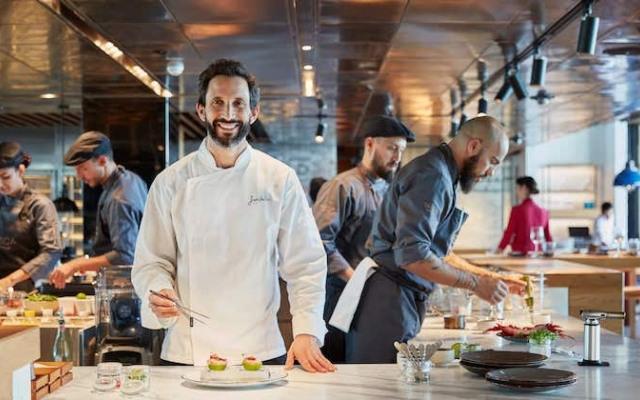
Gastronomy: between original mergers and know-how
If the health crisis has changed the face of many industries, the highly profitable restaurant sector must also renew itself and create new opportunities. Today, it is a question of new desires, values and strategic alliances.
So how is the gastronomy market innovating to maintain its aura, and what are the new challenges? Here is an overview.
New models for new expectations
With 90% of French people aware of gastronomy, and a 13% increase in worldwide spending on restaurant services over the next five years (to reach $360 billion), the gastronomy sector represents, beyond heritage and know-how, a considerable part of the world's GDP. And profitability means innovation.
To achieve this, the ones involved have had to take into account the daily needs of customers, but also create new distribution channels and develop a unique relationship with their regulars. Indeed, tourist dependence has its limits, and restaurant owners are now seeking to develop a clientele known as "local". Sometimes neglected in favor of foreign customers, it is now essential to capture and retain this clientele living in the neighborhood, around the restaurant, more likely to take away, order and especially to return.
Another notable evolution is that after the craze for bistronomy, it is now the turn of a "new cuisine" to emerge: based on health and well-being, with organic food as a spearhead, but also intolerances, superfoods and allergies. In 2020, 91% of gourmet restaurants offered at least one vegetarian dish on the menu. The balance of food, supply and quality of products are therefore at the heart of the issues. In addition, there is social responsibility. Anxious to associate gastronomy and commitment, many chefs are now betting on sharing, exchange and transparency, in order to be in phase with the new consumption modes. Because more than ever, it is necessary to stand out to seduce.
As for luxury, the customer relationship, besides its ethical aspect, must be authentic, captivating, immersive and personalized. And this, regardless of the economic or health situation.

An example is Dior and its multi-sensory gastronomic menu, called The Dior Menu. This initiative was launched in Dubai, in the Tasca restaurant of the Mandarin Oriental Jumeira hotel.
Led by Dior's beauty experts and Portuguese chef Jose Avillez, this exclusive and ephemeral menu echoes several references from Dior's Haute Parfumerie. The program includes Purple Oud, Ambre Nuit and the recent Tobacolor fragrance, all of which are transcribed into six signature dishes. A "real sensory feast" according to Jose Avillez, each recipe is accompanied by a fragrance to smell, complemented by a drink pairing. An experimental alliance that allows for an ever deeper immersion in the Dior universe and is being developed with other great names in luxury and gastronomy.
According to Thibaut de La Rivière, director of Sup De Luxe:
"Brands are investing in the field of food because it symbolizes new destinations, ideal for capturing a clientele often inclined to buy online. Memorable, these mergers become real vectors of emotions".
Hybridization & new players
Beyond the experience offered to customers, the industry is also opting for hybrids, combining traditional purchases with customized catering services. This is the case, for example, of certain museums and cultural centers, such as the National Gallery in Singapore, which is adopting this strategy by offering food services within its space, some of which even boast Michelin stars. There are also concept stores run by renowned chefs, offering local products, anti-waste workshops or competitions between professionals.
Another sector that is innovating by focusing on catering: transport.
KLM's business class airline attracts customers with an "Anytime for you" menu, which offers original and tasty products, in addition to the three meals initially included.
The search for a unique, even personalized experience seems to be an essential issue, which digital technology cannot fully address.
A great promise that proves that the restaurant business still holds a special place in the hearts of customers.